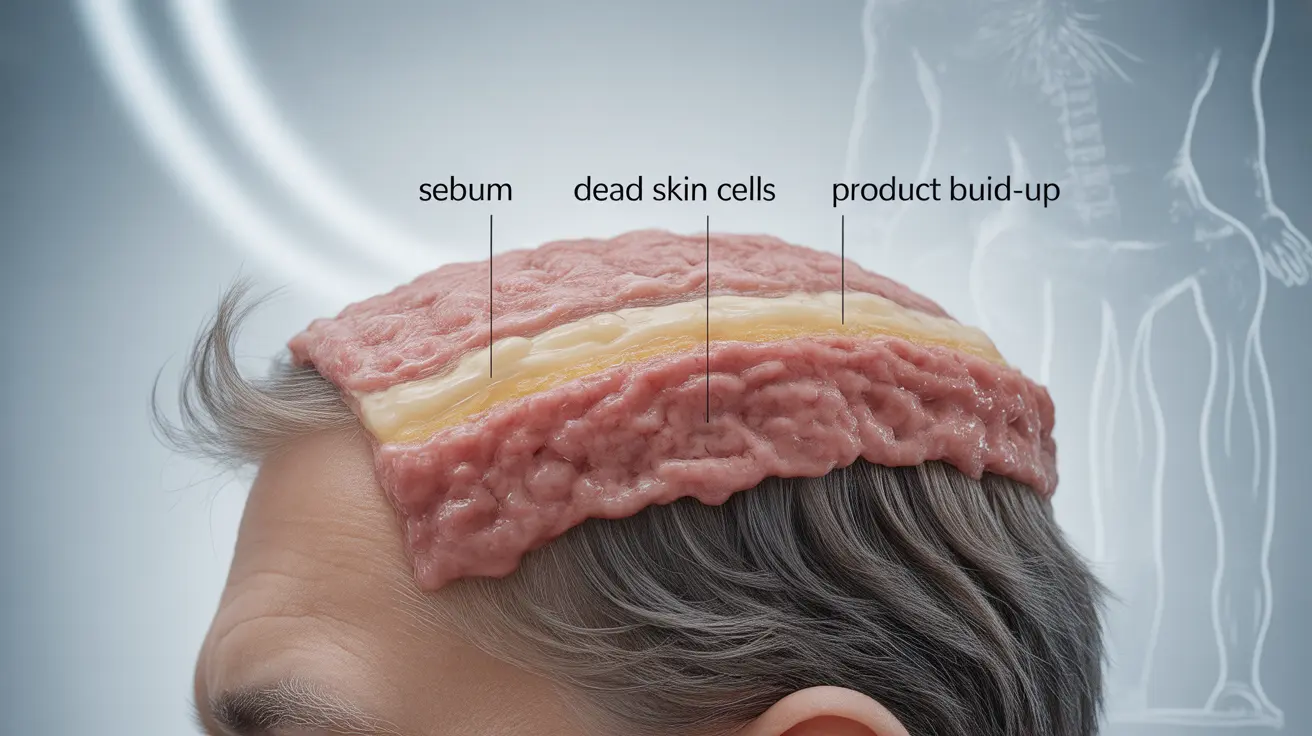Many people experiment with different hair washing routines, but understanding what happens when you don't wash your hair regularly is crucial for maintaining scalp and hair health. Whether you're considering extending the time between washes or wondering about the consequences of infrequent washing, it's important to know how this decision affects your hair and scalp wellness.
From buildup of natural oils to potential scalp issues, the effects of not washing your hair can range from minor inconveniences to more serious concerns. Let's explore the science behind hair washing and what happens when you skip this essential grooming habit.
The Effects of Skipping Hair Washing
When you don't wash your hair regularly, several changes occur on your scalp and hair strands. Your scalp naturally produces sebum, an oily substance that helps protect your hair and skin. Without regular washing, this sebum accumulates, leading to:
- Greasy, heavy-looking hair
- Unpleasant odors
- Itchy scalp
- Visible buildup
- Potential bacterial growth
This excess oil can trap dead skin cells, product residue, and environmental pollutants, creating an environment where bacteria and fungi can thrive.
Impact on Scalp Health
Your scalp's health is directly affected by your washing habits. Without regular cleansing, you may experience:
- Seborrheic dermatitis
- Scalp inflammation
- Clogged hair follicles
- Increased risk of fungal infections
- Persistent dandruff
These conditions can create discomfort and potentially lead to more serious scalp issues if left unaddressed.
Effects on Hair Growth and Health
Contrary to some beliefs, not washing your hair doesn't necessarily promote healthy hair growth. In fact, excessive buildup on the scalp can:
- Block hair follicles
- Interfere with normal hair growth cycles
- Weaken existing hair strands
- Create an unhealthy scalp environment
- Lead to increased hair breakage
Determining Your Ideal Hair Washing Schedule
The frequency of hair washing depends on several factors:
For Oily Hair
- Wash every 1-2 days
- Use gentle, clarifying shampoos
- Focus on scalp cleaning
For Normal to Dry Hair
- Wash every 2-3 days
- Use moisturizing products
- Balance cleansing with hydration
For Curly or Textured Hair
- Wash every 4-7 days
- Use sulfate-free products
- Focus on moisture retention
Prevention and Treatment of Scalp Issues
To maintain a healthy scalp and prevent problems from infrequent washing:
- Use clarifying shampoos monthly
- Incorporate scalp exfoliation
- Choose appropriate hair care products
- Maintain a consistent washing schedule
- Monitor scalp health regularly
Frequently Asked Questions
What happens to your hair and scalp if you don't wash your hair regularly?
When you don't wash your hair regularly, sebum, dead skin cells, and product residue accumulate on your scalp, leading to oiliness, itching, and potential scalp conditions. This buildup can also cause unpleasant odors and make hair appear flat and greasy.
Can not washing hair lead to hair loss or scalp infections?
Yes, prolonged periods without washing can lead to scalp infections and potentially contribute to hair loss. Excess buildup can clog hair follicles, create inflammation, and provide an environment for harmful bacteria and fungi to grow.
How does buildup on the scalp from infrequent washing affect hair growth?
Scalp buildup can clog hair follicles and interfere with normal hair growth cycles. This can lead to weakened hair strands, slower growth, and potential damage to existing hair. A clean scalp environment is essential for optimal hair growth.
What are effective ways to treat and prevent scalp buildup and dandruff caused by not washing hair?
Regular use of clarifying shampoos, gentle scalp exfoliation, and maintaining a consistent washing schedule can help prevent and treat buildup. Using products formulated for your specific hair type and incorporating anti-dandruff treatments when needed can also be beneficial.
How often should I wash my hair based on my hair type to maintain a healthy scalp?
Washing frequency varies by hair type: oily hair typically needs daily or every-other-day washing, normal to dry hair can go 2-3 days between washes, and curly or textured hair may only need washing every 4-7 days. Adjust based on your scalp's needs and lifestyle factors.




